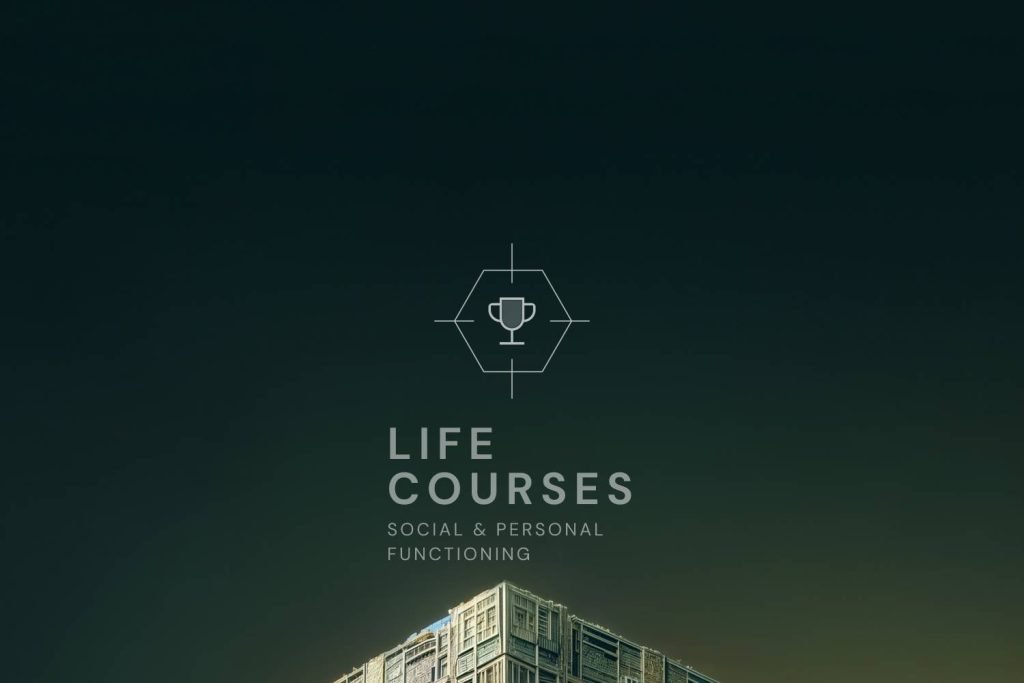RESILIENCE COURSES
Introduction to social functioning
This visual immersive course is designed to help navigate ambivalent social situations and interpersonal power dynamics. Through informative lessons, and situational practices, learners acquire the skills necessary to advance in their lives and accelerate their careers.
The lessons help understand social dynamics, recognize interpersonal cues, reshape one’s own response, and develop new habits. As a result, graduates of the course leave with an immediate impact on their social standing and personal circumstances. The modules introduce the core power operators within society and the concept of the human boundary system to provide a well-rounded understanding of the world around and the methods to drive life outcomes towards the desired direction.
Content type: Interactive graphic novel, infographics, text, video.
Modules: 2 taught modules, 4 practice modules, 1 play-based module.
Length: 7 weeks, self-paced.
Course outcome: Above average social skills.

“I have not only gained knowledge but also developed a strong sense of confidence and the ability to assert myself. I’m sincerely grateful for the training to help shaping me into the person I am today.”
— Roland McGuire, early participant
METHODOLOGY
The visually-enriched learning environment of the course is designed to offer a natural, interaction-based learning to dissect the complexity of building social fitness. The course offers a combination of educational materials (illustrations and text) and scenario-based practices (graphical social interaction-decoding drills).
Read the author’s note on the theoretical pillars of the course.
Self paced independent learning allowing for reflection and experimentation.
Optimised for desktop, laptop and tablet devices (accessible from mobile devices)
Course Lessons
Week 1 – Social power dynamics
Lessons
Introduction Personal factors Familial & network factors Major cultural factors Cumulated impact QuizzWeek 2 – Interpersonal power dynamics
Lessons
Introduction Overview of the boundary system Boundary Level 1 – Public level Boundary level 2 – Personal level Boundary level 3 – Private level Boundary level 4 – Physical level The rules of changing levelWeek 3 – Unmasking interactions
Lessons
Introduction In work environment Friends and family context In romantic relationships In the dojo (optional) At the business table (optional)Week 4 – Complex interactions
Lessons
Introduction In work environment Friends and family context In romantic relationships In the dojo (optional) At the business table (optional)Week 5 – Blatant exploitation attempts
Lessons
Introduction Situations with small number of factors Situations with high number of factorsWeek 6 – Covert exploitation attempts
Lessons
Introduction Situations with high number of factors Situations with small number of factorsWeek 7 – Walk of life
Lessons
Introduction StorylineIf you have any questions about the course content in relation to your particular situation, please get in touch with us.
COURSE CONTENT
Content preview
The thought material: The fundamentals of social dynamics and interpersonal interactions are explained with the help of illustration and text.

The practice modules: The underlying power dynamics in everyday interactions are decoded through contextual graphic novels (serious comics).
Get notified when enrollment opens
The course is currently available through reference. Individual enrollment will be available in the upcoming months.



